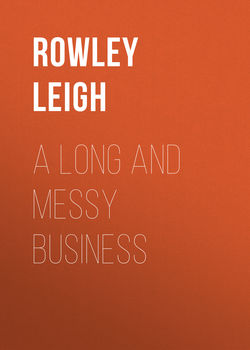Читать книгу A Long and Messy Business - Rowley Leigh - Страница 15
На сайте Литреса книга снята с продажи.
ОглавлениеForced from Thongs
Sea Kale with Poached Eggs and Truffles
Most of the time I do my best. I try to suggest recipes with
everyday ingredients whenever possible. I take pride in
getting the best out of a shoulder of lamb, a Savoy cabbage
or a pineapple. Most of the produce that you see
photographed in this book comes from a well-known
online supermarket. Bearing in mind that many good
ingredients that were readily available in the high street
thirty years ago – fresh mackerel, wild rabbit, herrings, a
piece of brisket, say – are no longer so readily found, this
is not always easy. This recipe, however, is made with
ingredients that are unashamedly more arcane.
To my knowledge, and I’m happy to be corrected, there
is only one commercial producer of sea kale in Britain: the
sainted Sandy Patullo who grows it as a little sideline to
his asparagus business near Glamis, in Angus. Although
lacking the hydroponic element, producing sea kale is as
complicated and laborious a process as the production of
radicchio di Treviso tardive. Sandy learned the techniques
of developing the crowns, producing ‘thongs’, and the
subsequent forcing of the sea kale in the dark, from the
Paske family in Lincolnshire. Since they discontinued
production some forty years ago, he has kept alive a
tradition that began in Victorian England, when sea kale
was a fashionable vegetable.
If sea kale vaguely resembles celery, it doesn’t taste like
it, for it is a brassica and when raw has a cabbagey taste
that diminishes on cooking, whereupon it acquires both a
delicate and subtle taste and a very succulent texture. It is
excellent simply dressed with butter or olive oil and is a
good partner for eggs and butter sauces. To serve sea kale
with eggs and truffles is a rare indulgence. Should you
manage to get your hands on the sea kale, but the truffles,
French or Italian, prove elusive, I would not worry too
much. Sea kale with a poached egg, or with boiled eggs,
or with hollandaise, is still a great delicacy.
I have my own truffle supplier who brings them from
Southern Umbria, a region long famous for its black
truffles, especially the town of Norcia, which positively
reeks of truffle. Most of my competitors scorn Italian
truffles in favour of the French ‘Perigord’ variety: I think
they are misguided in thinking one better than the other.
They may also be being duped, since half the truffles sold
as Perigourdine are rumoured to come from Italy anyway.
23
January
